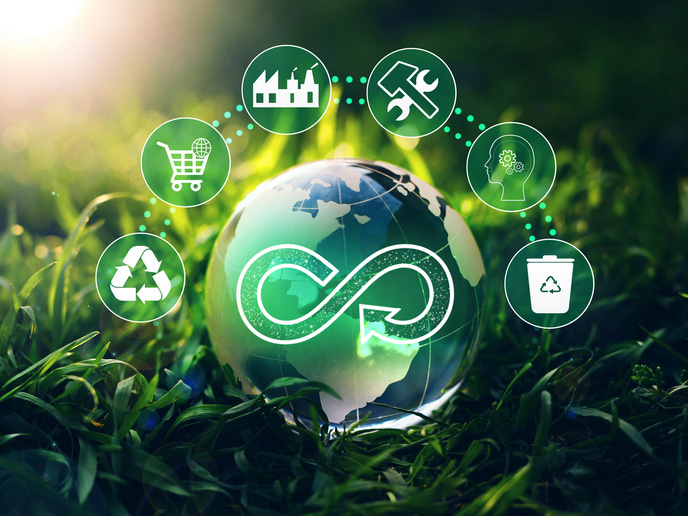
© Miha Creative/stock.adobe.com
In June 2025, the EU-funded CircSyst(opens in new window) project held its second general assembly since its launch the previous year. Held over a 2-day period, on 18 and 19 June, in Maribor (Slovenia), the event brought together academic institutions, research organisations, public bodies and companies participating in the project to share their progress towards a circular economy in Europe.
The cutting-edge solutions and innovations presented covered wastewater reuse, biowaste valorisation and food packaging waste valorisation. These efforts are part of CircSyst’s goal to drive Europe’s shift towards a circular economy by implementing large-scale pilot systems designed to be adapted and replicated across the continent.
CircSyst solutions are being demonstrated through pilot projects in eight regions: Valencia (Spain), Podravje (Slovenia), Flanders (Belgium), Gotland (Sweden), Paijat-Hame-Lahti (Finland), Castilla la Mancha (Spain), Central Macedonia (Greece), and east and central Hungary. The circular business models developed in these regions represent scalable solutions that reduce waste, increase resource efficiency and promote circularity in line with the EU’s circular economy action plan(opens in new window).
The general assembly was organised by the project’s three Slovenian partners: the Agricultural Institute of Slovenia, regional development agency RRA Podravje – Maribor and municipal company Komunalno podjetje Ptuj d.d. On the first day, speakers at the event highlighted the project’s alignment with EU circular economy goals and presented advancements made to date.
Enhancing impact
With the focus being on cooperation, replicability and scalability to maximise CircSyst’s impact and the adoption of its solutions, project partner Isle Utilities (United Kingdom) is leading collaborative co-design efforts and co-working initiatives. These are enabling smooth communication and knowledge exchange across all eight demonstrator sites. Furthermore, key external stakeholders such as policymakers, industry leaders and financial organisations are being engaged in these activities to accelerate technology transfer and help integrate innovations into regional and European frameworks.
Isle Utilities principal consultant Elvira Serra presented the progress made on CircSyst’s hybrid co-creation webinar series, which, as described in a news item(opens in new window) posted on the ‘Smart Water Magazine’ website, “unites demonstrator sites to co-develop solutions tailored to regional needs, ensuring scalability and relevance.” Speaking at the assembly, Isle Utilities technology consultant Wil Jones commented: “Robust exploitation and intellectual property strategies are vital for scaling CircSyst’s innovations post-project, ensuring a seamless transition to market.”
The second day of the event included a roundtable discussion exploring smart, sustainable resource use in Europe’s regions and two site visits. The sites visited were the Nigrad facility in Maribor and the CircSyst demonstrator site in Ptuj.
The Nigrad facility showcases circular construction products from several EU-funded projects testing and demonstrating the circular use of secondary raw materials, such as construction and demolition waste. Insights from the visit were shared in a YouTube video(opens in new window). The Ptuj visit included a tour of wastewater treatment facilities optimised for agricultural irrigation and horticulture growth systems cultivating carrot, onion, pepper and strawberry crops as part of circular solutions.
CircSyst (Circular Systemic Solutions for Plastic, Packaging, Bio-Waste, and Water) also had the opportunity to participate in the 40th Assembly of European Regions held on 17 June. This enabled partners to take part in high-level European policy discussions, further increasing the project’s impact.
For more information, please see:
CircSyst project website(opens in new window)